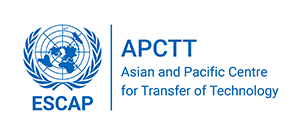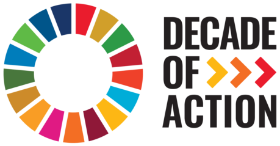Disposable Blood Bag Systems
Indian R&D organization is offering technology for the manufacture of disposable blood bag systems. Blood bag system is a disposable bio-medical device used for collection, storage, transportation and transfusion of human blood and blood components. The system consists of a single or multiple bag connected with tubes, needle, needle cover, clamp etc. The Blood Bags are made of plastic material which is compatible with blood. Blood bags can successfully replace the use of glass bottles for collection, storage, transportation and transfusion of blood and blood components since bottles require exhaustive cleaning, rinsing and autoclaving procedures and there are chances of breakage at any stage. Further, use of disposable bags eliminates the possibility of any contamination. The blood bags are manufactured from bio-compatible PVC, compounded with suitable additives. The formulation is used for making sheets, tubes by extrusion and other components like transfusion ports, clamps, needle cover etc. by injection molding. The bags are fabricated by high frequency welding technique. The bags are sterilized after the anticoagulant is filled. The inspected bags are foil packed and cartooned. The technology has been licensed to four Indian companies having capacity of 3 million bags per annum each enabling total production capacity of the country to 12 million bags per annum, The total demand of the country is at present estimated to be 10 million bags per annum. However, the product has been accepted internationally and there exists a substantial global demand of the product offering a very good export potential. Process: The following major steps are involved in the manufacture of blood bags system: - Compounding: The PVC material is compounded with a number of additives like plasticizers, stabilizers, lubricants etc. The formulation is used for making bags and tubes. - Extrusion: The compounded PVC is extruded through a die for converting the plasticized material into sheet form. The extruded sheet, after slitting, is cut into desired size and sent to welding section. The donor and transfer tubing’s are made by extrusion of PVC compounds. The tubes are then printed, and appropriate length are cut in line and sent to welding section - Injection Molding: The components like transfusion port, needle cover, clamp etc. are produced by injection molding. The components are ultrasonically cleaned and dried in drying oven. The needle is fixed in the needle holder. - Welding: The blood bags are fabricated by high frequency welding technique. Sized PVC sheets are placed between electrodes and high frequency at high voltage is applied. PVC gets heated very rapidly and sealing takes place between electrodes. Transfusion ports, donor and transfer tubing’s are then kept in appropriate position with the bag and welded to form integral part of the blood bag system. Welded bags are trimmed. Clamps and needle coverings are fixed on the tubing’s. After inspection the acceptable bags are sent to labeling section. - Preparation of Anticoagulant Solution: The anticoagulant constituents are premixed and solution is prepared in a pyrogen free distilled water. All the operations are done in conformity to GMP. The anti-coagulant solution is filled in the blood bags. - Sterilization: Steam autoclave is used to sterilize the blood bags. - Done at this Inspection: 100% inspection is stage to eliminate particulate matter, leak and other visible defects. The inspected bags are subsequently packed in the foil pack and are cartooned. Plant & machinery: Sheet extrusion line, Injection moulding m/c, H F Welding m/c, High speed mixer, Tube marking m/c, Vol. filling equipment, Ultrasonic cleaner, Autoclave. CONTACT DETAILS: Mr. N.K. Sharma - Managing Director, National Research Development Corporation, 20 Zamroodpur Community Centre, Kailash Colony Extension, New Delhi 110 048, India. Tel: (91-11) 648 0767 Fax: (91-11) 646 0506; 647 8010 Email: nrdc@x400.nicgw.nic.in - Web: www.nrdcindia.com.
Sector: Pharmaceuticals
Country: India
Area of Application: Pharmaceutical industry: blood collection, storage, transportation, transfusion of whole human blood and blood components.
Keywords: blood, storage, transfusion, bag
Advantages: Biocompatible; Use of glass bottles is completely eliminated; Environmentally sound product as it eliminates the need of washing and disinfection of glass bottles it replaces.
Environmental aspects:
Development Status: Fully Commercialized
Legal Protection:
Technical specifications: Land: 20,000 sq.m Building (covered area): 2,200 sq.m. Manpower required: 161 total, including 4 managerial, 136 skilled, 21 unskilled Raw materials (TPA): - PVC resin: 97.5 - plasticiser & add
Transfer Terms: Consultancy , Joint Venture , Technology Licensing , Others
Target Countries: World Wide
Estimated cost (US$):
Upload any relevant document:
Contact Person: APCTT (UNESCAP)
Address: Asian and Pacific Centre for Transfer of Technology (APCTT) C-2, Qutab Institutional Area
City: New Delhi
Country: India
Zip/Pin Code: 110016

